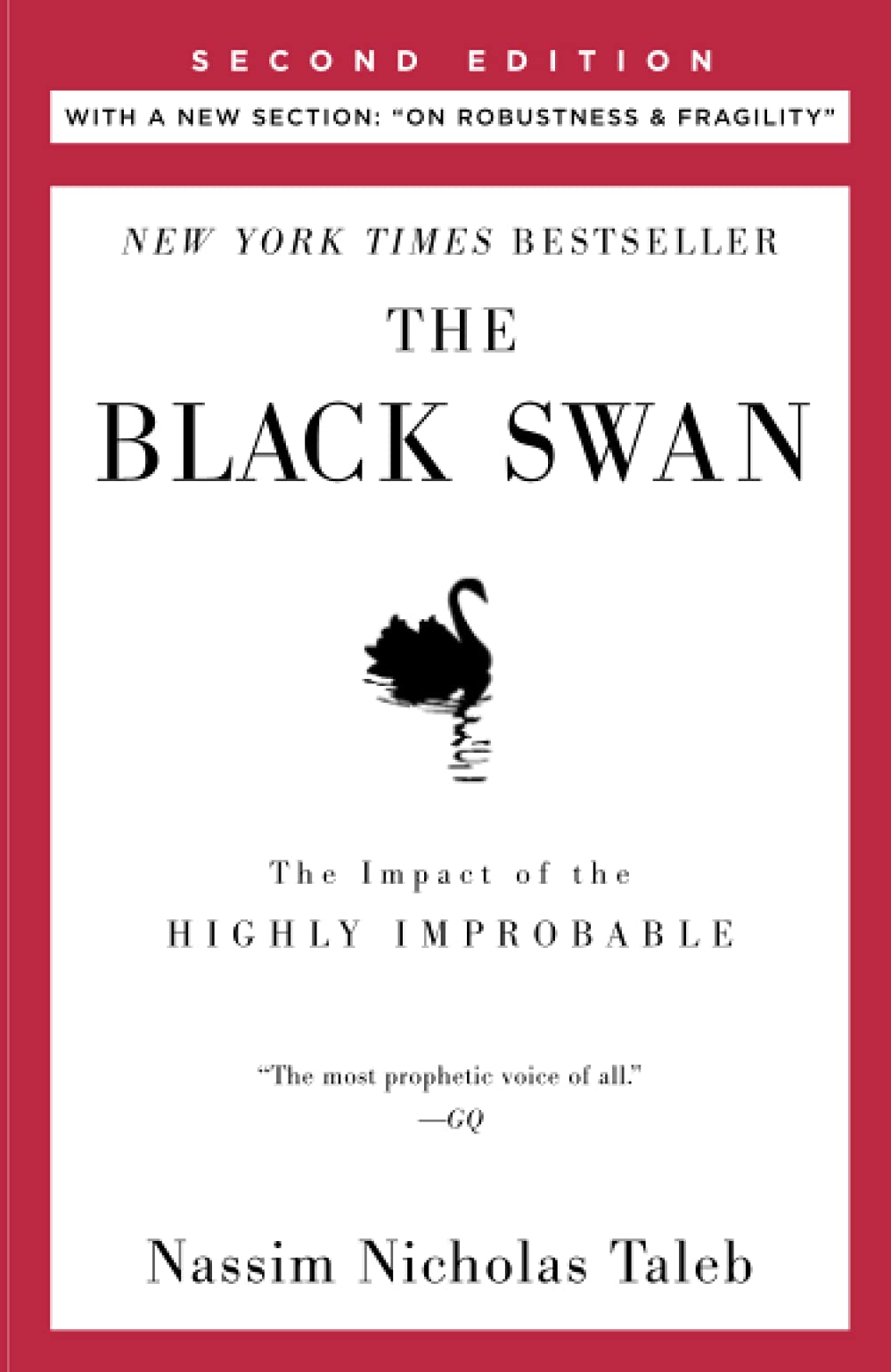
Notes on
The Black Swan: The Impact of the Highly Improbable
by Nassim Nicholas Taleb
• 2 min read
The book discusses a lot of biases and other errors on cognition. Survivor bias, confirmation bias, narrative fallacy, and so on.
Basically, big, rare, and inconceivable events happen. They happen more often than we think. We try to explain it in hindsight, but are most often wrong.
The people who can deal well with this uncertainty and unknowing can do very well. Those who are sure they know might do less well. We’re prone to make stupid bets, and we should aim to make more rational bets. It’s not that taking risks is bad, it’s taking bad risks that is bad.
All swans are white
People used to believe that all swans were white.
What one must realize is that it only takes one non-white swan to disprove this: and disproved it was, when Australia was discovered.
The Black Swan
A Black Swan event has three attributes.
- It’s an outlier (we don’t expect it)
- It carries an extreme impact
- We make up explanations after-the-fact to make it explainable and predictable
What you do not know
Reasoning with Black Swans in mind should make you more interested in what you do not know than what you do know. If it seems to easily be within the scope of possibilities, I.e., business as usual, it doesn’t matter as much. Other people also know of it.
How to get lucky
To make a killing, or to stand out in any other way, that is often the result of some Black Swan.
So we must aggressively try to get lucky. We can increase our luck-surface. There are various methods for this, but it seems like “maximal tinkering”, or, firing a bunch of shots, as well as recognizing opportunities as they arise are good ways.
The Narrative Fallacy
We make up explanations to try to make sense of things. This can go very wrong.
Non-linear is the norm
Non-linear is the norm. You generally don’t see linear improvements, for example. Learning cannot be measured as a linear function, but rather in jumps met my plateaus met by jumps (and so on…).
Linear is easy to understand, but it is not the norm.
Liked these notes? Join the newsletter.
Get notified whenever I post new notes.